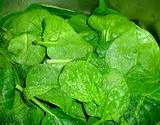|
Grandma's Glutamine Guide
|
Glutamine is the most abundant free amino acid found in the muscles of the body. Because it can readily pass the blood-brain barrier, it is known as brain fuel. In the brain, this amino acid is converted into glutamic acid -which is essential for cerebral function-and vice versa. It also increases the amount of GABA, which is needed to sustain proper brain function and mental activity.
It assists in maintaining the proper acid/alkaline balance in the body, and is the basis of building blocks for synthesis of RNA and DNA. It promotes mental ability and maintenance of a healthy digestive tract.
When an amino acid is broken down, nitrogen is released. The body needs nitrogen, but free nitrogen can form ammonia, which is especially toxic to brain tissues. The liver can convert nitrogen into urea, which is excreted in the urine, or nitrogen may attach itself to glutamic acid. This process forms glutamine.
Glutamine's unique amount of the amino acid in that each molecule contains not one nitrogen atom but two. Thus, its creation helps to clear ammonia from the tissues, especially brain tissue, and it can transfer nitrogen from one place to another.
 |  |  |
Supplemental Glutamine
Useful for Dieters and Bodybuilders
Glutamine is found in large amounts in the muscles and is readily available when needed for the synthesis of skeletal muscle proteins.
Because this amino acid helps to build and maintain muscle, supplemental glutamine is useful for dieters and bodybuilders. More importantly, it helps to prevent the kind of muscle wasting that can accompany prolonged bed rest or diseases such as cancer and AIDS. This is because stress and injury (including surgical trauma) cause the muscles to release this amino acid into the bloodstream. In fact, during time of stress, as much as one third of the glutamine present in the muscles may be released. As a result, stress and/or illness can lead to the loss of skeletal muscle. If enough glutamine is available, however, this can be prevented.
Supplemental L-glutamine can be helpful in the treatment of arthritis, autoimmune diseases, fibrosis, intestinal disorders, peptic ulcers, connective tissue disease such as polymyositis and scleroderma, and tissue damage due to radiation treatment for cancer.
L-glutamine can enhance mental functioning, and has been used to treat a range of problems including developmental disabilities, esilepsy, fatigue, impotence, schizophrenia, and senility.
L-glutamine decreases sugar cravings and the desire for alcohol, and is useful for recovering alcoholics.
Many plant and animal substances contain this amino acid, but it is easily destroyed by cooking. If eaten raw, spinach and parsley are good sources.
Supplemental glutamine must be kept absolutely dry or the powder will degrade into ammonia and pyroglutamic acid.
Caution Glutamine should not be taken by persons with cirrhosis of the liver, kidney problems, Reye's syndrome, or any type of disorder that can result in an accumulation of ammonia in the blood. For such individuals, taking supplemental glutamine may only cause further damage to the body.
Be aware that although the names sound similar, glutamine, glutamic acid (also sometimes called glutamate), glutathione, gluten, and monosodium glutamate are all different substances.
DISCLAIMER:
The statements made here have not been approved by the Food and Drug Administration. These statements are not intended to diagnose, treat or cure or prevent any disease. This notice is required by the Federal Food, Drug and Cosmetic Act.
Return from Glutamine to Amino Acids
Return to Grandma's Herbal Remedies Home





